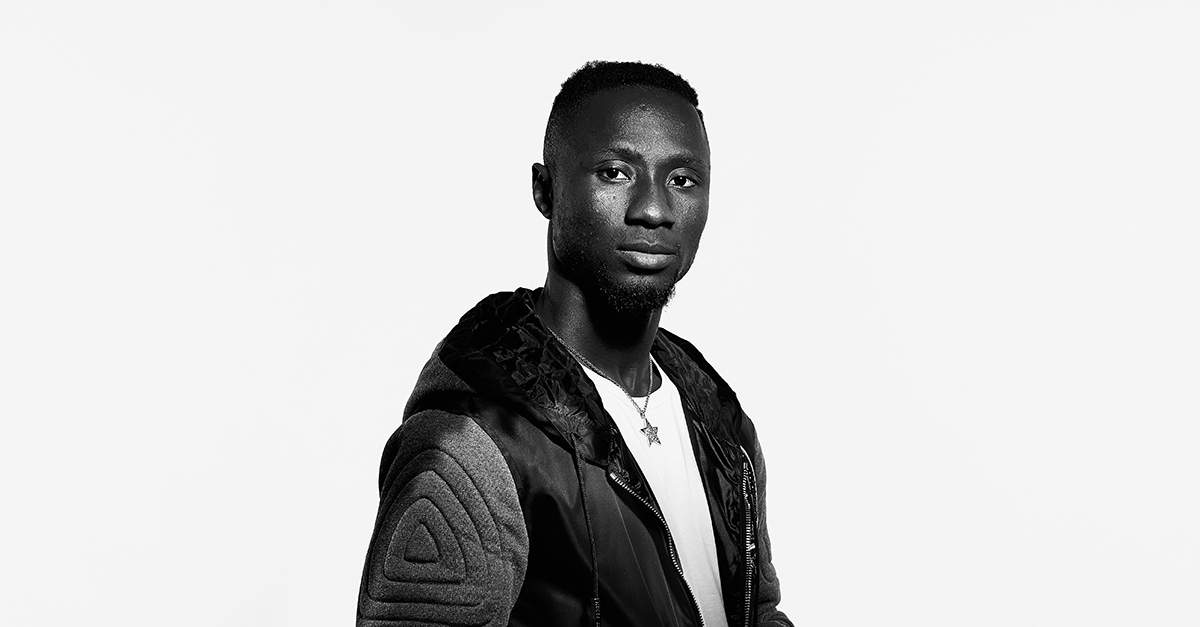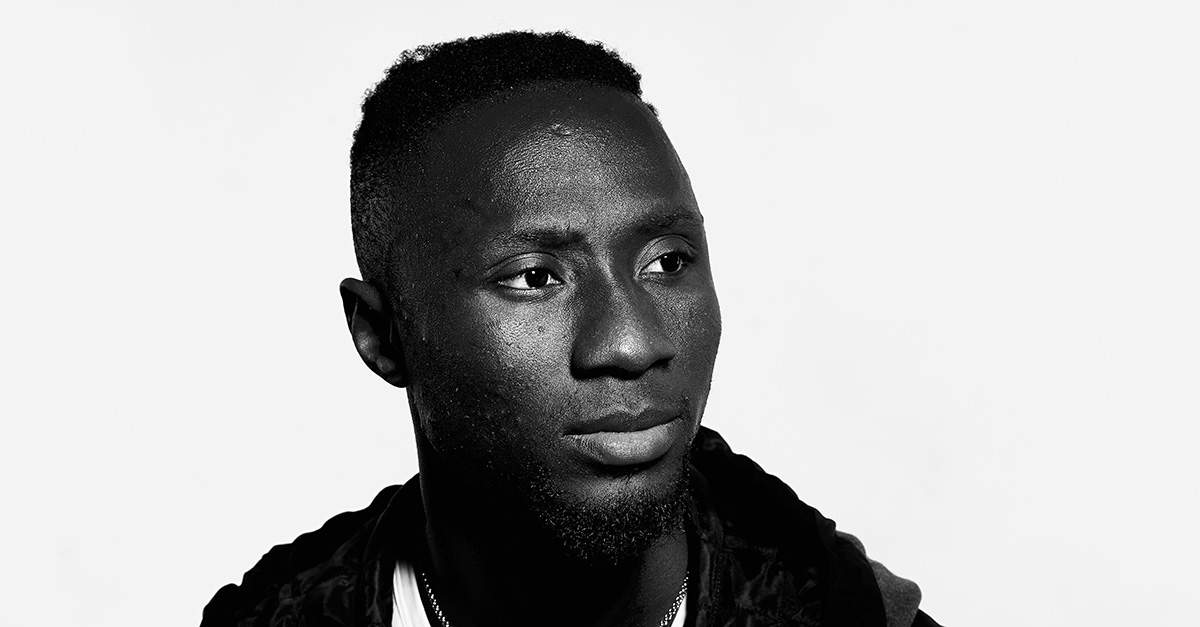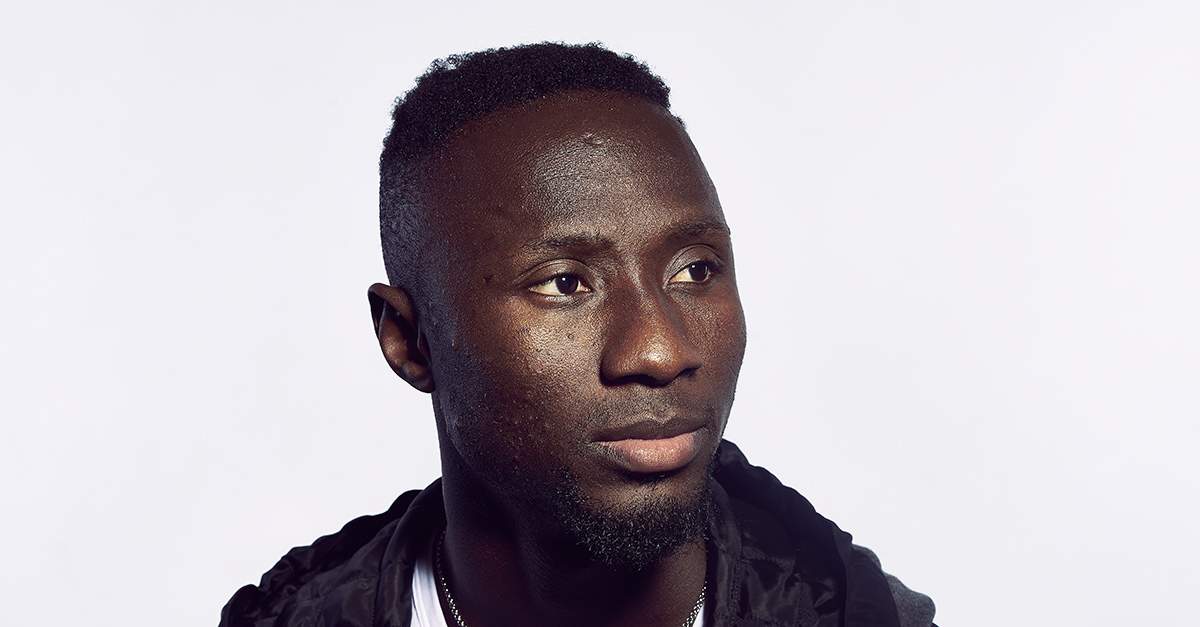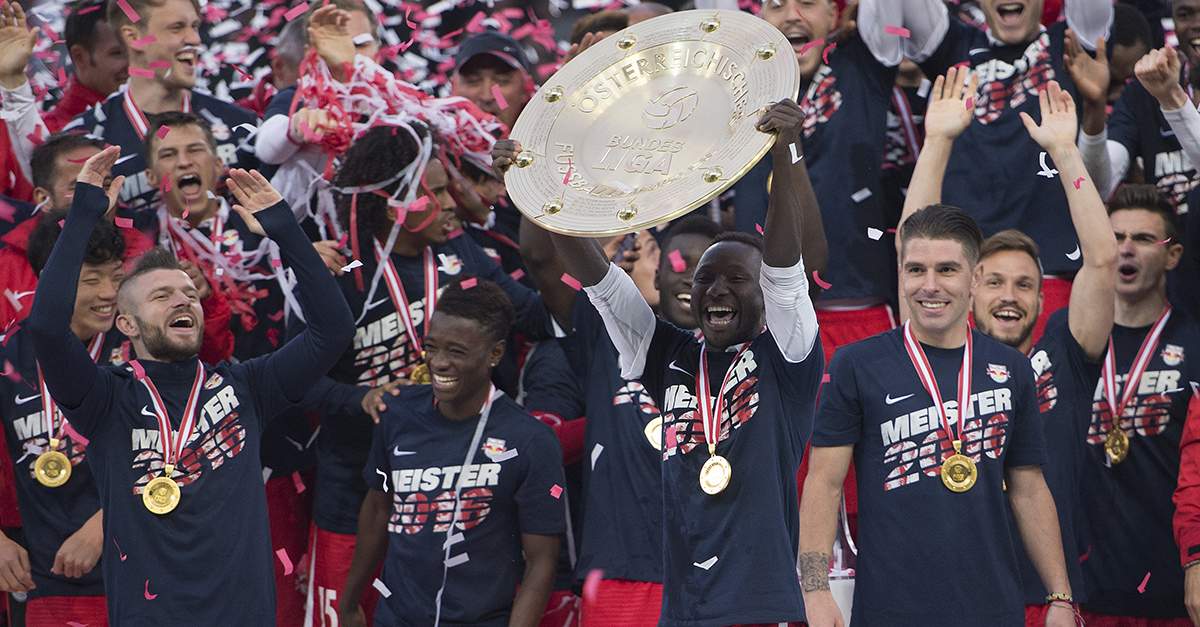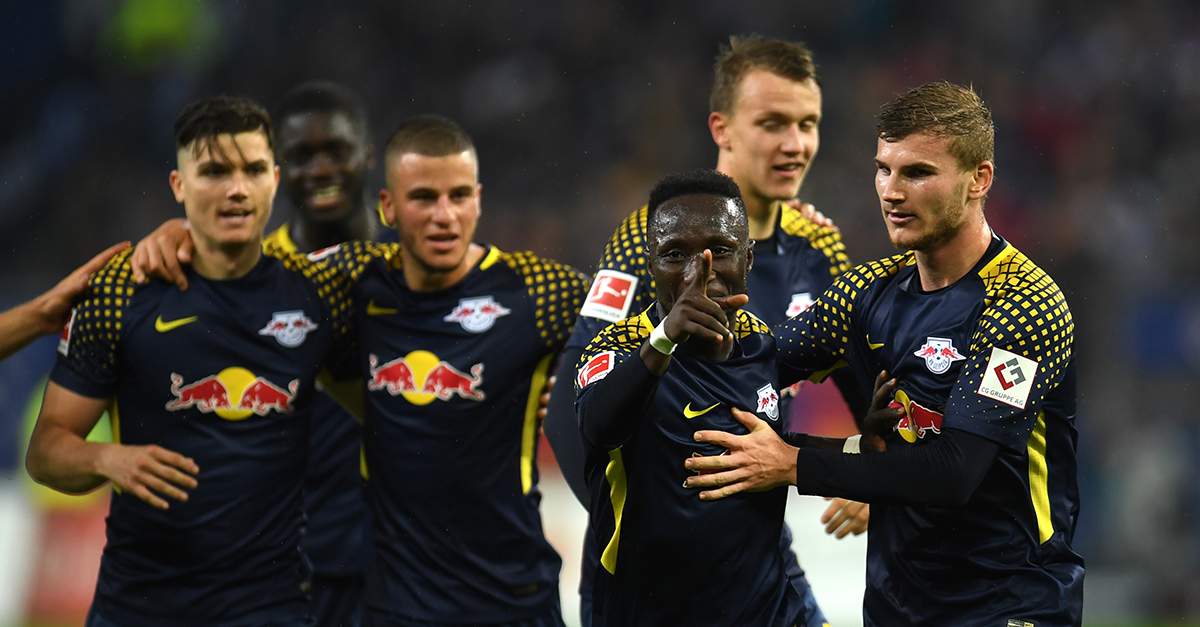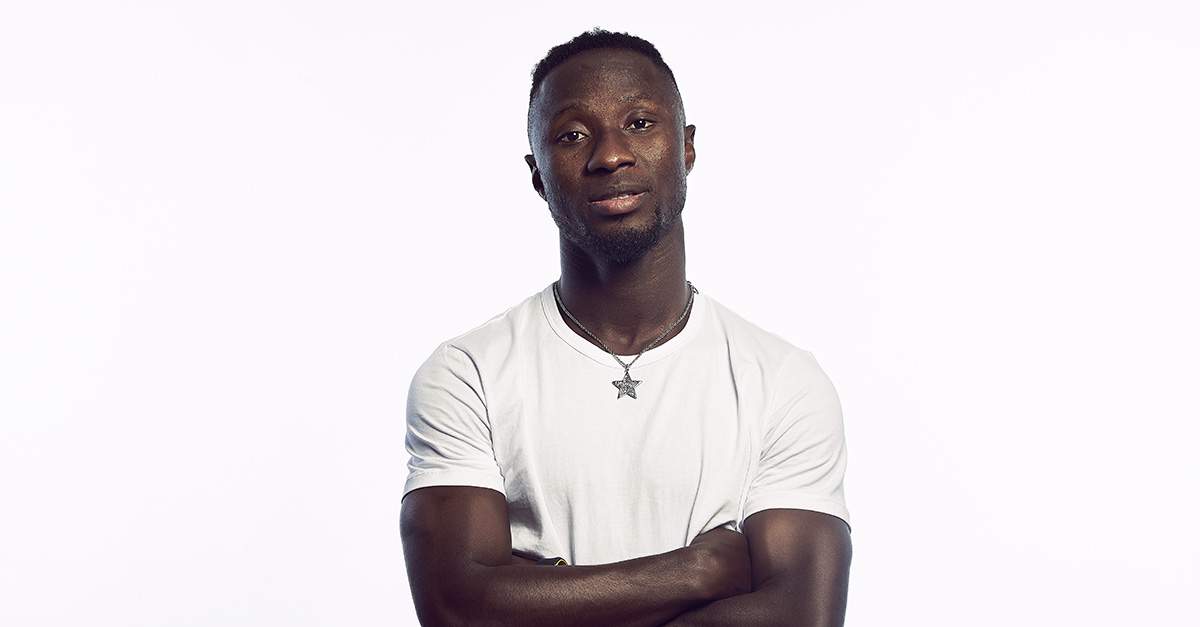The makeshift ball is magnetised to his bare feet as he turns away from two markers, darting towards stones that serve as the goal. The handed-down kit which drowns his tout petit frame gets tugged from behind, but he shrugs that off and speeds on.
Then comes the real challenge. The kid, who has yet to hit double figures in age, feels a heavy hit to his back and first ensures possession is still secure, before getting a shot off. A young Naby Keita has scored, and as he celebrates, he quickly scans the car that impeded him in the build-up.
“This was a normal kind of game,” the midfielder exclusively tells Goal as he retraces his football-centric childhood in Koleya, an area of Guinea capital’s Conakry.
“We would play anywhere there was open space, which was often on the street and we would have to dodge the cars!
“I was bumped so many times, but I kept going because I never wanted to lose possession. Nothing could separate me from the ball and I learnt so much from my experiences on the street.
“We played with whatever we could and I would have nothing on my feet, or sometimes, play with old, damaged shoes,” Keita continued after breaking into the 2017 Goal 50, which ranks the 50 best players in the world of the past year and will be revealed in full on Tuesday November 14.
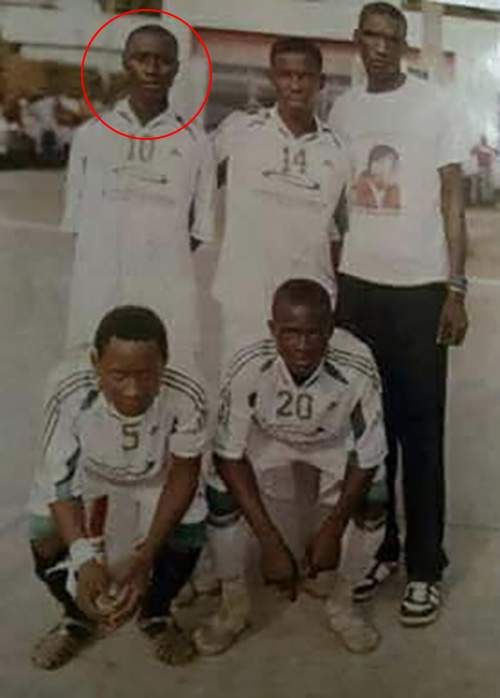
“I didn’t have boots and treasured football shirts that were given to me. All that has helped me be better prepared for anything now as a professional and I’m also not scared of anything on the pitch.
“I was quite small and so I had to fight for everything: the chance to play, for the ball, to get respect and that’s why not even cars could stop me. It’s where the aggression in my game, which is so important for my position, comes from.”
Conakry’s own le roi de la rue (King of the Street) is now the most expensive African footballer in history. Liverpool activated a £48 million clause in the RB Leipzig lynchpin’s contract this summer as well as paying a premium to secure his services from July 1, 2018. The move has been mapped out since the idea of turning professional was crystallised in his mind as a teenager, but his ascension to the top of the game began as a toddler.
As soon as Keita could walk his mother, Miriam Camara, would have to confiscate items from his feet. “She has told me that anything that would fall from the table, whether it was a bottle of water or an orange, I would dribble with it,” he says, his words punctuated with laughter.
“Whatever was on the floor that I could kick, I would entertain myself with it. No matter where she would take me, I would do this.”
His father, Sekou Keita, believes Naby’s destiny was decided even before then. “My dad told me that as a baby, I loved the ball - to look at it, to touch it. I always wanted it around me.”
Despite both feeling it was inevitable their son would want to pursue a career in football, the 22-year-old’s parents tried to direct him towards a different path. “They wanted me to study,” Keita recalls. “They felt education was the most important and more stable, but there was nothing else for me but football.
“They tried and tried, but they could see where my head and my heart was. Everyone in the community would say to them that I’m the best player in Conakry and, eventually, my parents told me they know I’ve got a special gift so they will fully support my dream.”
At 12, the dynamo was already being advised by local scouts that he should head for Europe, but it was too much for someone so young to process. “I was not mentally ready yet for such a big step,” Keita explains. “About two years later, I would watch a lot of Ligue 1, Champions League and Premier League games on TV and I knew I wanted to be playing at that level.
"It was impossible to do that at home, so it was clear that I would have to test myself in Europe. I was determined to become a footballer, not only because I loved the game, but so I could provide for my family.”
And so at 16, flooded with enthusiasm but unsure of what to expect, he ventured to France for trials. “My parents were terrified. They didn’t want me to go so far away and they were worried about how I would adapt to these new surroundings,” Keita admits.
“It was more difficult than I could have imagined as everything except the language was different. I was used to playing football with my friends, but now I was with strangers that wanted to mostly keep to themselves.”
He moved back and forth between Conakry and Western Europe, where rejection from Lorient amongst others at these showcases slowly ate into his conviction.
“I did wonder if I would ever make it. It was such a tough time,” Keita says. “You have your dream within touching distance, then it falls through and you have to start from the beginning again.”
The most jarring thing about this period wasn’t being in an unfamiliar place, clashing with a contrasting culture, or the dissimilar people he was coming into contact with, but the completely alien way football was interpreted.
“I was never exposed to the professional side of the game,” Keita explains. “I didn’t grow up in an academy, everything I knew was from the street. I would get the ball, I would run with it, show some skill to beat a player and score.
“During these trials, coaches were asking me to do things I’d never heard of! They were using football terms that I couldn’t understand and giving instructions that I had no clue about. I didn’t know about tactics and when I was rejected that is what I was told.”
It was only six years ago when Keita received that crushing feedback, and yet now, you would struggle to find a midfielder as astute and effective as him both offensively and defensively. Schalke director Christian Heidel aptly exclaimed that Leipzig possess a “12th player” because "Naby is like two, this boy is incomprehensible”.
He can tackle, take on defenders, intercept, switch the play, transition quickly, dissect or nullify the opposition, dictate his side’s tempo; a unique, valuable combination.
Le Mans had been the first club to rank Keita’s potential higher than his rawness, but they were unable to recruit him at 18 as they were on the brink of bankruptcy. However, one of their employees recommended the “rough diamond” to FC Istres’ sporting director at the time, Frederic Arpinon, who did his due diligence and spoke to scouts that watched Keita’s performance at a tournament in Marseille, organised by former Celtic defender Bobo Balde. The reviews prompted the club in the south of France to sharply arrange a trial, in which Naby made an instant impression.
Istres offered him a three-year deal and in November 2013, Keita thanked them with a goal and assist in a luminary debut display in the 4-2 victory over Nimes.
“I had waited so long, had so many setbacks and when I got my first chance, I wanted to prove I belonged in Europe,” he says as he recalls the game.
“My parents were still very worried about me. I had to call them six times a day and tell them everything that was happening!” Keita chuckles.
Arpinon swiftly figured it would be tough to keep the aptitude of their new acquisition hidden, and while Ligue 1 teams were scared to gamble on the little player with a large ceiling, Gerard Houllier was convinced he’d take off at Red Bull Salzburg.
Then the Head of Global Football for the energy drink’s stable of clubs, and now still an advisor, the former Liverpool manager discussed Keita with Ralf Rangnick, who was the sporting director for the Austrian outfit before assuming the same role at Leipzig.
The pair watched the Guinea international represent his country in a friendly against Mali on May 25, 2014 in France and Houllier sold him on Salzburg’s commitment to development.
That summer, Keita signed a five-year contract at Die Roten Bullen, where Sadio Mane provided valuable guidance before moving to Southampton.
“At first, I wasn’t starting and it was very frustrating,” Keita reveals. “I didn’t like it and it made the settling-in period harder. But Sadio said: ‘My little brother, stay calm. Your chance will come and when it does, you will make the most of it.’
“He helped me with everything - the language, making friends, understanding the club and the city. And, of course, he was right. Once I was put into the team, I showed my qualities and everything went much smoother.
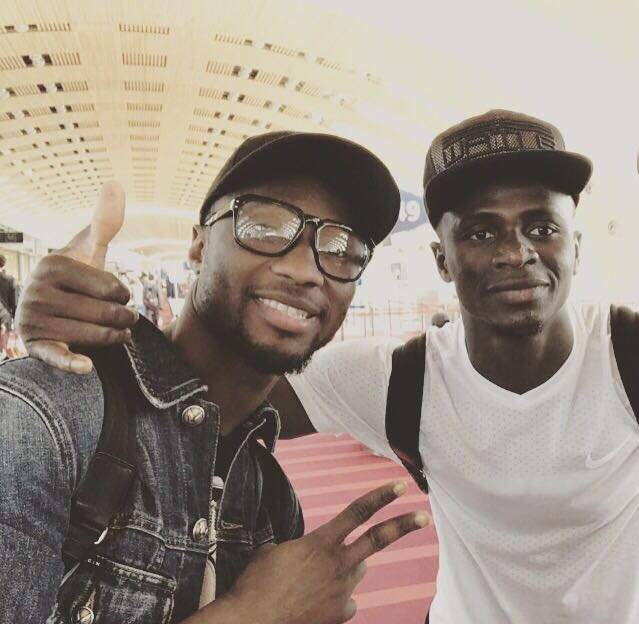
“Salzburg improved me as a player and I learnt so much there, I got a really tactical education. Sadio was important for me, he still is! To me, he’s my big brother. He really likes to learn new things, to improve and to push himself and we are the same in this way. He’s a good example for me.”
Mane, three years Keita’s senior and also represented by Arena11 sports group, still feels protective over the Guinean and watches his games at every opportunity - either live or via highlights.
“He is a really special player and is like family to me,” the Liverpool speedster says. “We were close at Salzburg and still keep in touch. I enjoy watching him and look forward to helping him again when he comes next year.
“He asked me about Liverpool and I told him this is an amazing club with talented players, a great manager and lots of ambition. The city and the people are really nice and he will feel at home here.”
Next summer will not mark the first time Keita pulls on a Liverpool kit.
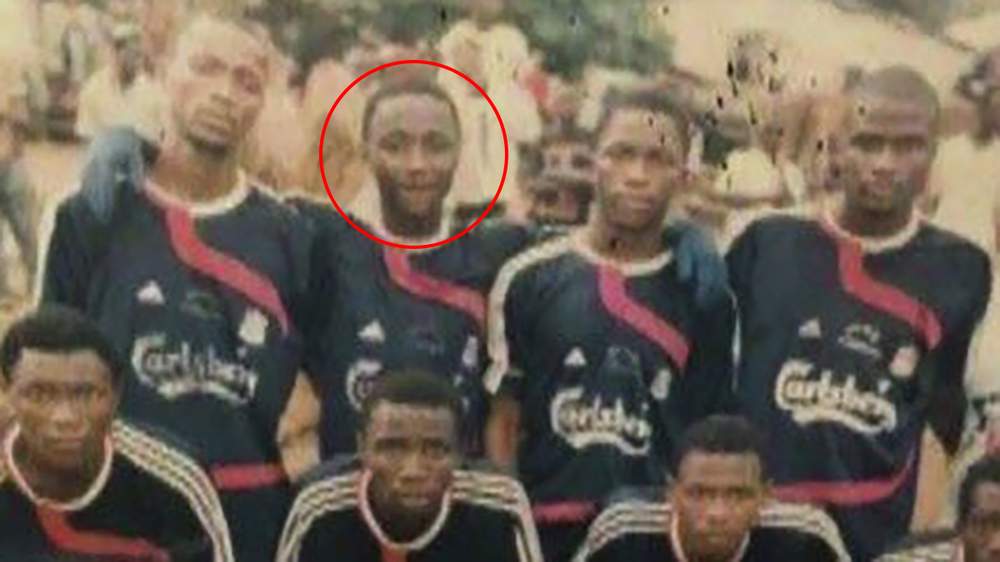
“When I was around 11 or 12, my friends and I were choosing which shirts we would get for our team. Because my father nicknamed me Deco as he thought I played like him, I wanted us to get the Barcelona strip - they were my favourite.
“All my friends were Liverpool supporters, though, and I really liked the club too so we decided on them. I don’t think any of them or I could really imagine that I would grow up to actually wear a real Liverpool shirt and represent the real Liverpool!”
Beyond his kickabout group, there was one prominent person constantly referencing Keita’s next club.
“My father is a huge fan!,” he reveals. “As far back as I can remember, he has been talking about them. Before I even knew what Liverpool was as a kid, he was mad about them.
“Of course, when he found out about their interest and when the deal for next season was done, he was delighted. He wanted to speak about Istanbul, Steven Gerrard and every other big game or player of the club.”
Keita, however, is not thinking about lining up under Jurgen Klopp just yet. “I have a lot still to achieve in this campaign with Leipzig and my focus is all on them,” he says. “The club have been good for me and I’ve grown so much with them. The move from Salzburg to Leipzig was great for me and I have gone up another level. Last season was special for us, we played great football and finished second in the Bundesliga to give us our first taste of Champions League.
“I used to watch Xabi Alonso in the Champions League and Premier League when I was in Guinea and last season I got to play against him in midfield before he retired. When I think about things like this, it reminds me of how blessed I am, but also of how hard I’ve worked and far I’ve come. But this is only the start, I am never satisfied, I never get comfortable.”
When the CAF African Footballer of the Year nominee returns home, he is greeted with more reminders of his achievements as well as greater inspiration to push on.
“When I go back to Conakry, there are still children playing on the street without shoes, dodging the cars. I always buy boots when I’m back for as many kids as I can because I know how much it can mean to have something so simple. There's so much skill and talent in Guinea, it fills me with pride.”
Not everything is exactly the same during the homecoming. “I wanted to be Deco, Titi Camara or Pascal Feindouno when I was young, and now there are kids with my name on the back of their shirts! That is such a big motivation for me and I hope I continue to show them that with courage and determination, they can achieve anything.
“It doesn’t matter how poor you are, or where you’re from, if you are willing to make sacrifices, willing to work hard and to never stop fighting for your dreams, you can make them happen.”
So much has altered in Keita’s life so quickly, but there are always the constants. “My mother is here, she comes every three months to visit and stays with me for a while,” he says.
“Now she doesn’t have to shout at me for kicking everything around, but she is still my rock. I am nothing without my family, and no matter what happens, I will never forget where I am from.”
From being the one to watch in the Bundesliga last season, Keita is now seemingly the one to target. Leipzig coach Ralph Hasenhuttl has no concern over the three red cards the No.8 received within a 39-day period recently, stating his player is “often provoked.” That he is now targeted signifies Keita’s swelling status and how significant the opposition believe him to be.
His influence is unlikely to be tempered anytime soon. “I want to win. I plan to only get better and stronger. This is just the start for me,” Keita says with a knowing smile. “I’ve come this far, so what is the point of not targeting the very top?”

